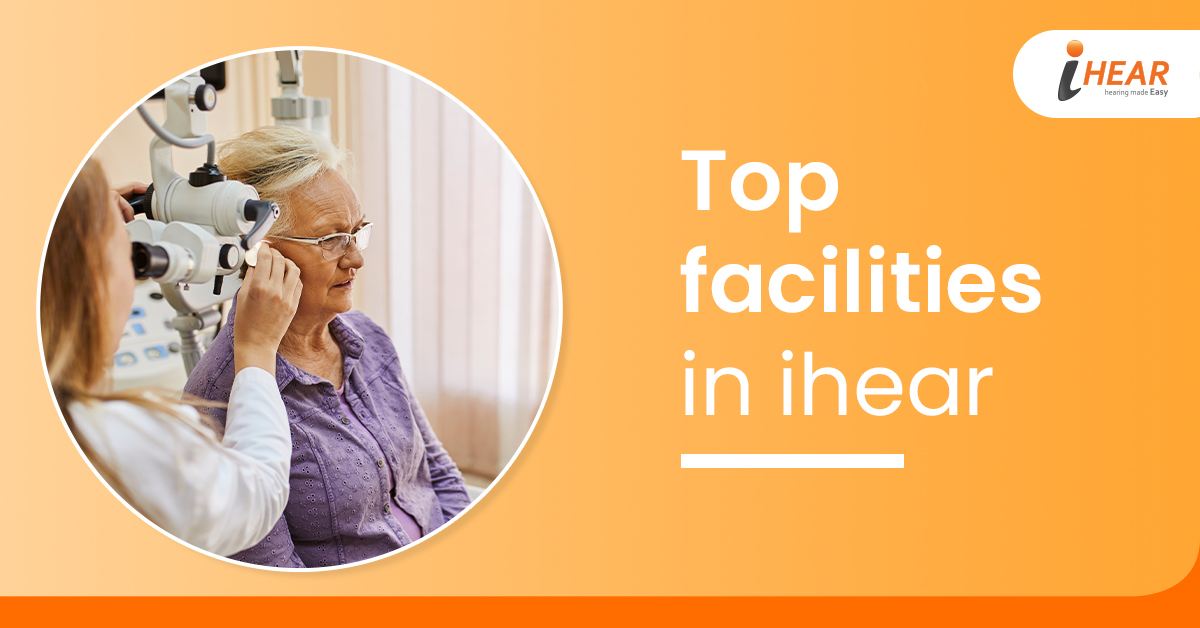How do I know if I am experiencing hearing loss?
- Do you frequently ask to repeat the said words?
- Do you tune up the radio or television louder than others?
- Do speech by other people often sound muted or as if they are mumbling to you?
- Do you experience a ringing sound in your ears?
- Do you find men’s voice easier to understand as compared to female’s?
- Does the hearing problem make you feel embarassed when you meet new people?
- Do you have trouble hearing the telephone?
- Do you find it difficult to follow a conversation in a noisy restaurant or in a crowded room?
- Did you have any significant exposure to noise at workplace?
- Does having hearing problems cause you to feel depressed?
How do hearing aids work?
Hearing aids fill the gap created by a hearing loss by receiving and amplifying sound. While there are many different types of hearing aid technology, four basic components are common to them all:
1) A microphone to receive sound
2) An amplifier to make those electrical impulses stronger
3) A receiver (speaker) to translate those impulses into louder sounds and
4) A battery to power the system.
Why do people refuse help for hearing loss?
A lot of people do not accept help for hearing loss because hearing loss is wrongly associated with growing older. Most people do not want to admit that they are getting older. Also many people have heard about other people’s negative experience in the past with hearing aids. Hearing aid technology has made drastic improvements over the past few years. Keep in mind that every hearing loss is different and every person has different listening needs. This means that every person will have different expectations and a different experience.
What types of hearing aids are available?
When selecting a hearing aid, you can select circuit and you can select size.
Circuit options include: analog, programmable and digital.
Size options are: BTE, RITE, ITE, ITC and CIC.
Should I buy more than one hearing aid?
If you have a hearing loss in both ears, it is recommended that you consider hearing aids for both the ears. You will receive maximum benefit with good hearing in both ears.
Will my hearing aid amplify loud sounds and damage my hearing further?
Your hearing aid will be preset to a safe level of maximum amplification. You may have to re-accustom yourself to loud sounds. All sounds are amplified, although loud sounds are amplified to a lesser degree than softer sounds.
What sort of changes will I have to make in my life once I have a hearing aid?
First, understand that a hearing aid will not completely restore your hearing. What it will do is enhance sound so that you can hear better. Since hearing loss is gradual, over the years you may have become unaccustomed to normal environmental sounds such as traffic noise, the hum of a refrigerator or background conversation. When you begin wearing a hearing aid, you will need to re-educate your brain to practice selective listening, the ability to choose only those sounds which you wish to hear.
Wear your hearing aids as much as possible so you will be come skilled at recognizing sound direction, learning what hearing aid settings work best in different situations.
Why don't hearing aids that look the same cost the same amount?
Hearing aid shells look alike, but what’s inside can be vastly different. There are many different kinds of circuits, including those that are digital and programmable. Size also affects the cost of a hearing aid. As a rule, the smaller the hearing aid, the more expensive.
How long should a hearing aid last?
A hearing aid’s life expectancy is typically 5-8 years.
How long do hearing aid batteries last?
Hearing aid batteries lasts depending on the size of your batteries. 10 size lasts for about 60-80hrs, 312 size lasts for 100-150hrs, 13 size lasts for 1800-200hrs, 675 size lasts for 250-280hrs and when the hearing aid is used most of the working day, every day. If you experience short battery life, contact us.

